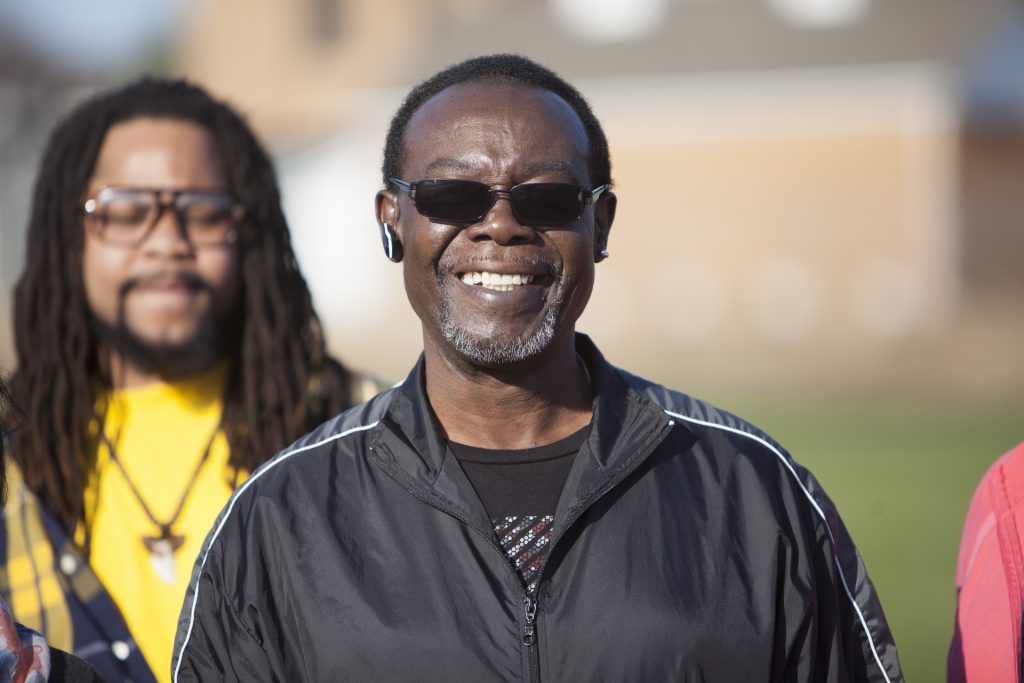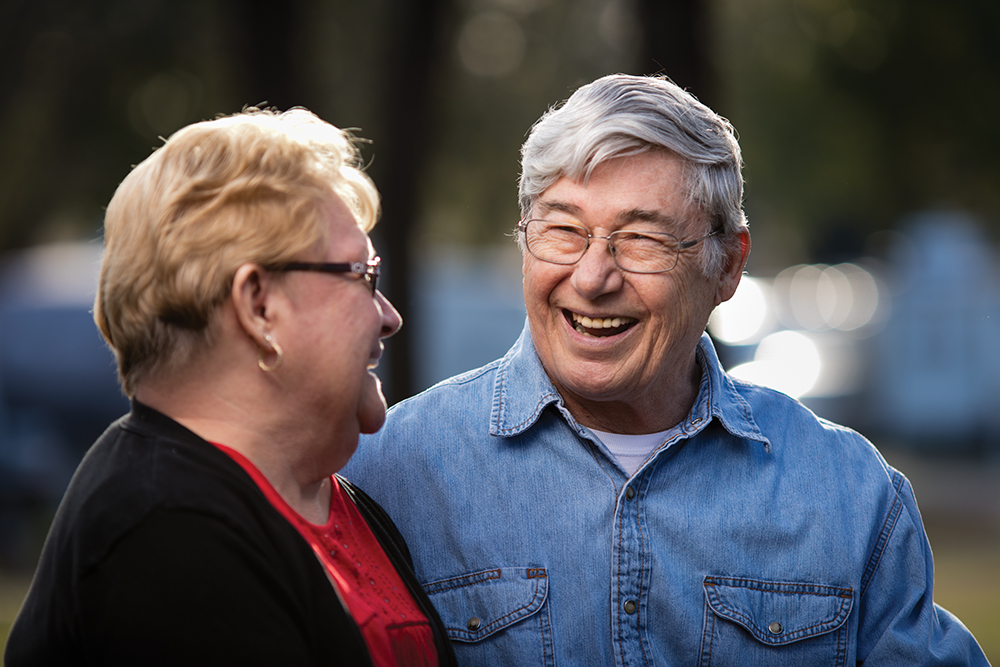Testimonials
Breast Cancer Survivor
Coach Karrie Redeker
ICC Women’s BasketballIt was the start of Wednesday’s women’s basketball practice at Illinois Central College, the team was on a high having just found out they were playing in the national tournament, and head coach Karrie Redeker picked up the phone to hear she had breast cancer. Her treatment would become her personal game to play over the next year, and she would face the challenges the same way she coached her team, with faith over fear, big goals and wearing ICC blue. Karrie never told anyone she had breast cancer, but that she was “going to beat breast cancer.” From the beginning, her mindset was “proud to be an overcomer.”
While in treatment, Karrie led her team in one of the best seasons she has coached, ranking number one in the nation and having a 32 game winning streak. The teams theme that year was Stronger Together, and to Karrie this began to represent the way you get through any adversity. She never felt she was facing treatment alone. The team’s basketball success allowed for Karrie to set the stage for an epic Cancer Awareness game between her number one nationally ranked team and the number five ranked team. The game went almost to overtime before Illinois Central College won on a last second shot. In addition to spreading cancer awareness, prevention and support, the team asked fans to give donations for three point shots made and charges taken throughout the season and raised over $4,000.00 for Illinois CancerCare Foundation.
October 5, 2020
When he hit 237 pounds and found himself out of breath after climbing the stairs, Calvin Pettitt of Peoria decided it was time to take action. He bought some workout clothes and shoes, and then started walking regularly on the track next to Bradley University’s Shea Stadium. The weight started dropping fast—too fast. It was kidney cancer. “My grandfather and my mom both died of cancer. I thought it was a death sentence.”
With God, his extended family and the team at Illinois CancerCare by his side, Calvin proved it’s not. He had his kidney removed, joined a clinical trial and now feels good enough to start taking laps around the track once more. “I prayed a lot. I told God I just wanted to see my children and grandchildren progress a bit more before I leave this earth.”
Calvin Pettitt May 8, 2017
At 75, Roger Nuhn of Glasford is a relative newlywed. When he and Bonnie married five years ago, he joined a close-knit family—two daughters, five granddaughters and two great-grandsons (and another great-grandchild on the way). They all rallied around him when he started treatment for chronic lymphocytic leukemia in the winter of 2014.
So did his Illinois CancerCare family. Presented with the opportunity to participate in a clinical trial, Roger debated it, then decided, “What have I got to lose?” The answer: Nothing. He’s not only responding well to treatment—which he’s not sure he could have afforded on his own—but he’s also recovered the energy to do the things he loves. “I wouldn’t have been able to do anything without this treatment. Now, I feel like doing stuff again.” That includes plans to head to Florida with Bonnie to escape the coming winter.
Cutting-edge cancer treatments offered in our patients’ hometowns. Through the NCI Community Oncology Research Program (NCORP), Illinois CancerCare shares in $2.5 million of annual funding for National Cancer Institute clinical trials. Patient costs for trials exceed that amount, however, resulting in a significant budget shortfall. The Foundation fills that gap—committing up to $400,000 per year for the next four years to help ensure local patients receive the quality care they deserve, close to home.
Roger Nuhn May 8, 2017
When you consider all the things you’d like to pass on to your children, cancer certainly doesn’t make the list. But given her family’s history, Ann Best knew it was a possibility. Ann, her mother and her sister are all survivors, and she’s lost several aunts and cousins to the disease.
After much deliberation, Ann underwent genetic testing. Since then, two of her siblings and several of her nieces and nephews have done the same. She’s hoping her two sons will undergo testing soon.
Family members have received a mix of positive and negative results, but whatever the outcome, Ann’s convinced it’s better to be proactive than reactive. “There’s so much anxiety when you think about how this knowledge might affect your kids. But the more you know, the better equipped you are to deal with it.”
Knowing the important role the Foundation plays in helping promote and advance testing locally, Ann remains a vocal advocate, serving as a volunteer, donor and board member. “For my kids, I want to see really good research continue right here. The Foundation helps keep Illinois CancerCare on the cutting edge of treatments and therapies.”
The Foundation supports genetic screening programs to identify hereditary cancers, with special emphasis on families at risk for colorectal and breast cancer. Your contributions help those in need receive financial assistance for tumor sequencing—and empower people to understand their risks and make informed decisions about their futures.
Ann Best May 8, 2017
If a cancer diagnosis has taught Norman Todd and his wife Ladonna one thing, it’s that life goes on and you might as well live it to the fullest. In 2015, shortly before Ladonna had the upper-left lobe of her lung removed due to cancer, Norman was diagnosed with rectal cancer. More than 45 treatments later, he’s feeling good—and more appreciative than ever of everyday life. The couple spends about half their time at the Evening Star Campground near Topeka, Illinois, and Norman says he’s enjoying their time together there even more these days.
He’s also hoping to play a role in helping future patients discover that same quality of life by taking part in a Foundation-funded clinical trial. Participants are testing a chemotherapy drug that may eliminate the need for radiation prior to surgery—which could help reduce side effects and get patients into the operating room faster. “I appreciate all that the people who went before me did to help develop new treatments, and I want to do what I can to help someone else in the future.”
Norman Todd May 8, 2017






